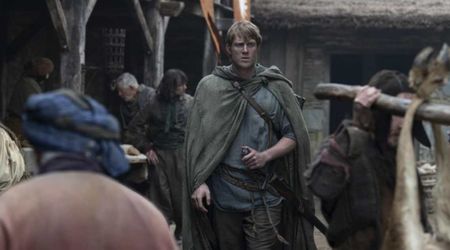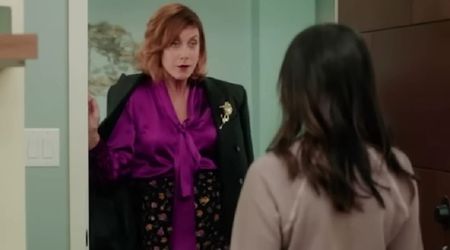'Flannery': Would O'Connor's alleged works of racism be canceled if they were written in the 2000s?

Critically acclaimed and celebrated American author, Flannery O'Connor is the subject of a documentary that releases on virtual cinemas today, July 17. It revolves around her life and career, from her upbringing to her unfortunate and early death from complications from lupus at the age of 39 in 1964. O'Connor rose as a prominent fiction writer in the mid-20th century and enthusiasts of her work revered her for her use of dark humor and gothic elements in the portrayal of the rural American South. O'Connor was also Catholic and a very religious one at that. Her works embody spiritual elements and key Catholic themes of grace and redemption as she highlighted human conditions like alienation and the relationship between God and man. She grew up in the Jim Crow South, at a time where racial tensions were at an all-time high, and segregation was in place. Although the Supreme Court took measures to introduce integration in society, this sudden evolution gave O'Connor a sense of dread and uneasiness.
Although O'Connor's work features the southern-hierarchy clashing with integration and multiculturalism, anecdotes and letters that she had written to friends and acquaintances point towards her being a racist. In her lifetime she had been know to have an anti-racist stand and even respected the work of Martin Luther King Jr. However, the letters that were made public in 2014 clearly show O'Connor as a bigot. In the early 2000s, the author was banned by Catholics and her works were discontinued from syllabi across Southern schools because it leaned towards being racist. O'Connor was placed on the forbidden list. Despite her work incorporating black characters and her addressing racial relations in a way that portrayed the two sides of human nature, some critics who were also fans of O'Connor deemed her statements to be problematic. Others said her works are an extension of her derogatory comments towards the Blacks.

Her literary works centered on the differences between laws with regard to race and race relations and also shed light on how Blacks and Whites actually interacted. Yet the reality was entirely contradictory to her penmanship. In a letter addressed to her friend, Maryat Lee, a playwright and civil rights activist, O'Connor wrote: “You know, I’m an integrationist by principle & a segregationist by taste anyway. I don’t like negroes. They all give me a pain and the more of them I see, the less and less I like them. Particularly the new kind.” Her letters, thereafter, also contained the N-word and the bigotry persisted and the intensity in its use gradually increased.
Observing O'Connor's characteristics and writings in the modern-day scenario, it would suffice to say that if cancel culture and social media existed in that day and age, she would have been subject to instant backlash for her words. Being Catholic and professing your faith through your writing is one thing, but projecting xenophobia under the guise of anti-racist writing is another. Take J K Rowling, for example. The 'Harry Potter' author came under fire in June 2020, for transphobic comments she made against the trans community. Her stance stirred backlash and even celebrities like Daniel Radcliffe, Emma Watson, Rupert Grint, and Eddie Redmayne spoke out against her.
June is the month designated to the celebration of the LGBT community. On June 6, Rowing quoted an op-ed piece on Twitter that discussed 'people who menstruate'. She took issue with the fact that the op-ed didn't clearly use the word 'women'. In the tweet, she wrote: "‘People who menstruate.’ I’m sure there used to be a word for those people. Someone help me out. Wumben? Wimpund? Woomud?” Despite facing the ire of Twitter users, Rowling did not relent and proceeded to elaborate on her views. “If sex isn’t real, there’s no same-sex attraction. If sex isn’t real, the lived reality of women globally is erased. I know and love trans people, but erasing the concept of sex removes the ability of many to meaningfully discuss their lives. It isn’t hate to speak the truth,” she tweeted.

“The idea that women like me, who’ve been empathetic to trans people for decades, feeling kinship because they’re vulnerable in the same way as women—i.e., to male violence—‘hate’ trans people because they think sex is real and has lived consequences—is a nonsense," she added. “I respect every trans person’s right to live any way that feels authentic and comfortable to them. I’d march with you if you were discriminated against on the basis of being trans. At the same time, my life has been shaped by being female. I do not believe it’s hateful to say so.” Four days later, she added fuel to the controversy and published a lengthy post on her website. She linked the post in a tweet and captioned it "TERF Wars," which is an acronym for 'trans-exclusionary radical feminist'.
Rowling is known for writing novels predominantly for the child and young-adult demographic. O'Connor, on the other hand, had often described her novels as not for children but not for adults either. Her short stories are grotesque and not everyone's cup of tea, while Rowling plays on fantastical elements. Either way, Rowling's controversial and inflammatory comments subject her to instant backlash and criticism from not only her fans but well-known people in the film as well as the literary industry. The social media cancel culture is brutal and ruthless, even capable of ending careers just as soon as they have started. Were O'Connor's revolutionary and ground-breaking literary works written in the 21st-century social-media dominated, culturally, and technologically advanced age, her career may have just been short-lived.










